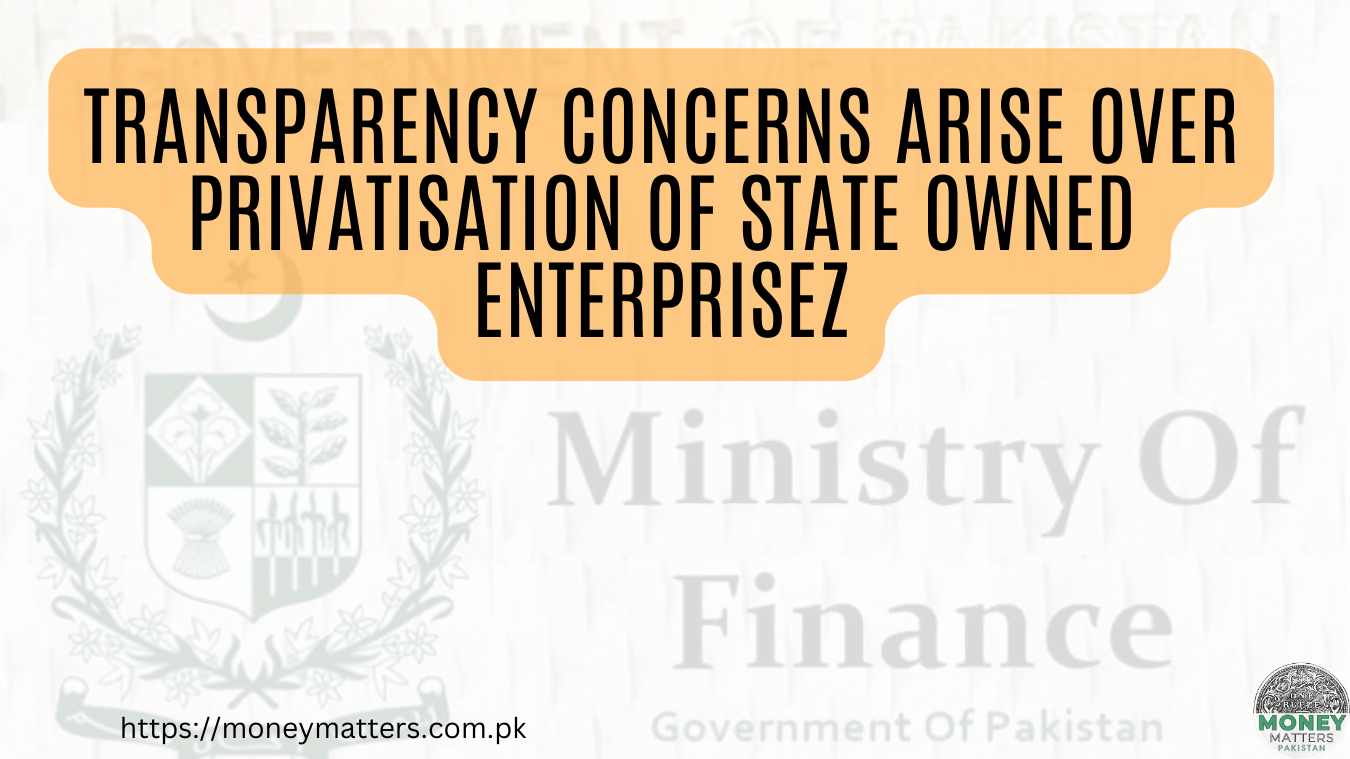Key Takeaways:
- Ministry of Finance criticized for lack of transparency on privatisation decisions.
- Cabinet Committee on State-Owned Enterprises (CCoSOEs) approves significant privatisation moves.
- Profitable entities like Oil and Gas Development Company and loss-making ones such as Quetta Electric Supply Company under scrutiny.
The Ministry of Finance’s handling of the privatisation process for 45 state-owned entities has sparked controversy amid concerns over transparency and accountability. Despite directives from Prime Minister Shehbaz Sharif emphasizing maximum transparency in privatisation matters, details regarding these significant decisions were notably withheld.
“The Cabinet Committee approved the summaries presented by the Power Division, Ministry of Industries & Production, and the Ministry of Overseas Pakistanis & Human Resource Development, while the agenda of the Petroleum Division was deferred for further deliberations.”
Ministries Seek Clarity on Privatisation Decisions
Four ministries sought guidance from the Cabinet Committee on State-Owned Enterprises (CCoSOEs) regarding the fate of approximately 45 state-owned entities. These entities represent a diverse spectrum ranging from Pakistan’s most profitable enterprises to those with substantial financial losses. The decision-making process involved considerations of whether to privatise, retain, or restructure these entities, marking a critical juncture in Pakistan’s economic governance.
CCoSOEs Decision and Ministry of Finance’s Response
Finance Minister Muhammad Aurangzeb chaired the pivotal CCoSOEs meeting where a majority decision was reached to proceed with the privatisation of numerous entities. However, the Ministry of Finance opted to release a terse statement without divulging specific details about the entities in question or the precise outcomes of the deliberations. This move has drawn scrutiny for departing from the transparency standards advocated by the Prime Minister.
According to the Ministry of Finance, “The Cabinet Committee approved the summaries presented by the Power Division, Ministry of Industries & Production, and the Ministry of Overseas Pakistanis & Human Resource Development, while the agenda of the Petroleum Division was deferred for further deliberations.”
Entities in Focus: Profitability and Restructuring
Among the 45 entities under scrutiny, notable examples include the Oil and Gas Development Company, which reported profits amounting to Rs225 billion, and the Quetta Electric Supply Company, which recorded significant losses exceeding Rs88 billion. The Power Division, responsible for 25 entities, initially proposed the privatisation of 13 entities within the distribution and generation sectors. However, the CCoSOEs decided to escalate the privatisation efforts to nearly 16 entities, with initial restructuring plans for two.
Specifically, the committee greenlit the privatisation of FESCO, GEPCO, HESCO, IESCO, LESCO, MEPCO, PESCO, and HAZECO, alongside major power generation companies such as Jamshoro Power Company Limited (Genco-I), Central Power Generation Company Limited (Genco-II), Northern Power Generation Company Limited (Genco-III), and Lakhra Power Generation (Genco-IV). QESCO and TESCO were earmarked for restructuring as a precursor to potential privatisation.
Further Deliberations and Stakeholder Reactions
Previous sessions of the CCoSOEs had debated the liquidation of three out of 14 entities considered, while decisions pertaining to the Export Processing Zone Authority (EPZA) led to the retention of its regulatory functions within the government, with proposals to segregate its developmental responsibilities. Additionally, the committee resolved to reconstitute the board of the Small and Medium Enterprises Development Authority (SMEDA) by separating the roles of chairman and chief executive.
In the realm of the Petroleum Division, discussions centered on 13 state-owned enterprises, predominantly profitable ones, with a strong inclination towards their privatisation. Notably, the committee endorsed the privatisation of Saindak Metals Limited (SML) and Pakistan Mineral Development Corporation (PMDC), with plans to revisit other entities in the presence of the petroleum minister.
The Ministry of Overseas Pakistanis, overseeing entities such as the Overseas Employment Corporation, Overseas Pakistanis Foundation, and Pakistan Real Estate Investment Management Company (PRIMACO), recommended retaining these entities within the public sector despite suggestions that private sector involvement could enhance efficiency.
The Ministry of Finance’s stance on disclosing pivotal privatisation decisions has raised pertinent questions about the government’s commitment to transparency in economic policy. Stakeholders and industry experts await further clarity on the criteria and rationale underpinning these significant decisions, which hold implications for Pakistan’s economic restructuring and governance framework.




